
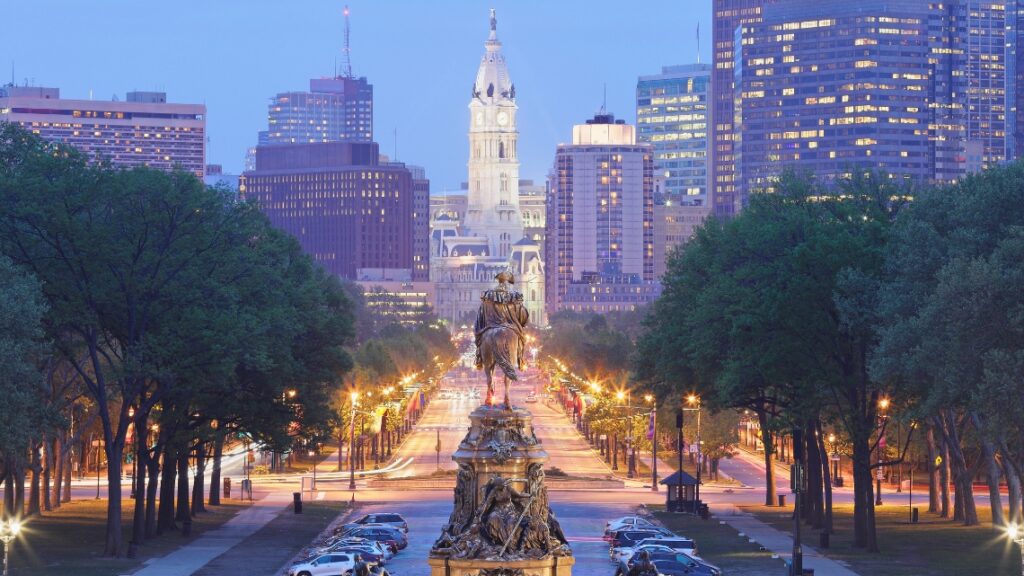
Accessible Philadelphia: A Complete Guide for Disabled Travelers
Table of Contents
Philadelphia, otherwise known as the City of Brotherly Love, exudes a unique version of American culture and is extremely important from a historical perspective, being the very place where the Declaration of Independence and the U.S. Constitution were debated and signed. Amazingly, Philadelphia is also one of America’s most accessible cities, offering a wide range of accessible museums, historical sites, accommodations, transportation, and public services. So, if you’re considering Accessible Travel Philadelphia and need some tips, this comprehensive accessibility guide will help you explore this great city with both ease and confidence.
Getting Around:
Accessible Transportation Philadelphia Getting around Philadelphia is easy with SEPTA, the city’s public transit system. It covers the entire five-county region with subways, buses, trolleys, Regional Rail, light rail, and paratransit options, with the buses, trolleys, and trackless trolleys all being totally accessible. They come equipped with ramps or lifts, kneeling features, and audio announcements that call out stops and door movements.
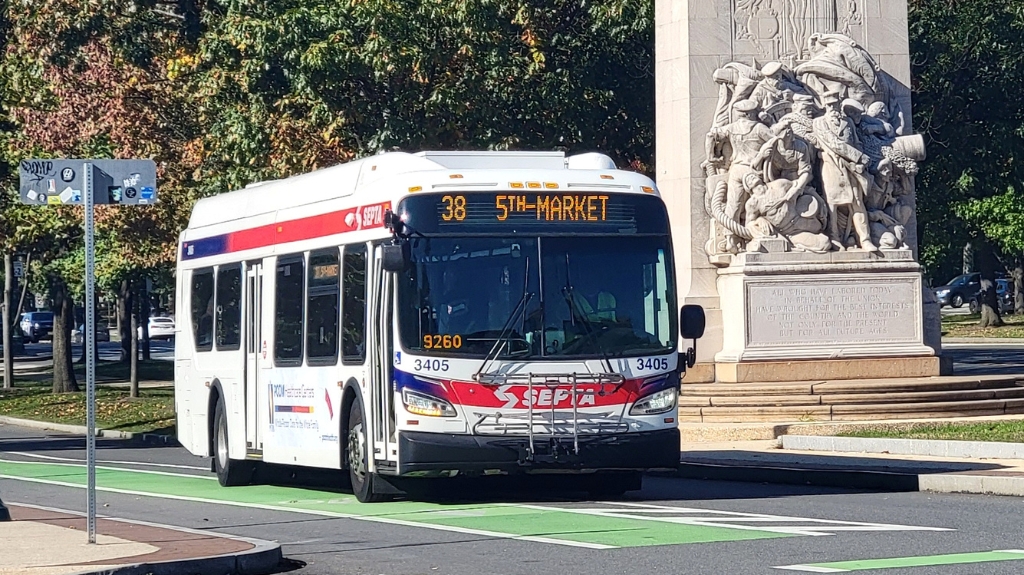
Thankfully, accessibility is a growing priority, and today, over 60% of SEPTA stations (rail, subway, trolley and bus stations) are wheelchair accessible, and the goal is full access by 2034. Look for the wheelchair symbol on route listings at septa.org. You can check real-time elevator updates online or call their 24/7 hotline at +1 877-737-8248.
Regional Rail cars are also wheelchair accessible, and bridge plates are available where needed. Priority seating is clearly marked, and trained service animals are always welcome. Articulated buses offer low floors and front-door ramps for easier boarding. Ticket machines have braille, raised lettering, and audio options. Online, SEPTA’s site includes a screen reader for travelers with vision impairments.
Riders with a SEPTA Key Reduced Fare Card or a PA Disability Transit ID get half-price fares on weekdays. Personal care attendants ride free on buses, subways, and trolleys when accompanying a registered rider.
Taxis and Ridesharing:
Accessible taxis can be easily pre-booked via services such as 215-Get-A-Cab. To request a wheelchair accessible ride in Lyft, head to the main menu, tap “Settings,” and turn on the “Wheelchair Access” feature under ride preferences. To book a wheelchair accessible ride through Uber, enter your destination in the app, scroll through the ride options, choose “WAV,” and tap “Confirm WAV” to complete the request.
Philadelphia International Airport (PHL)
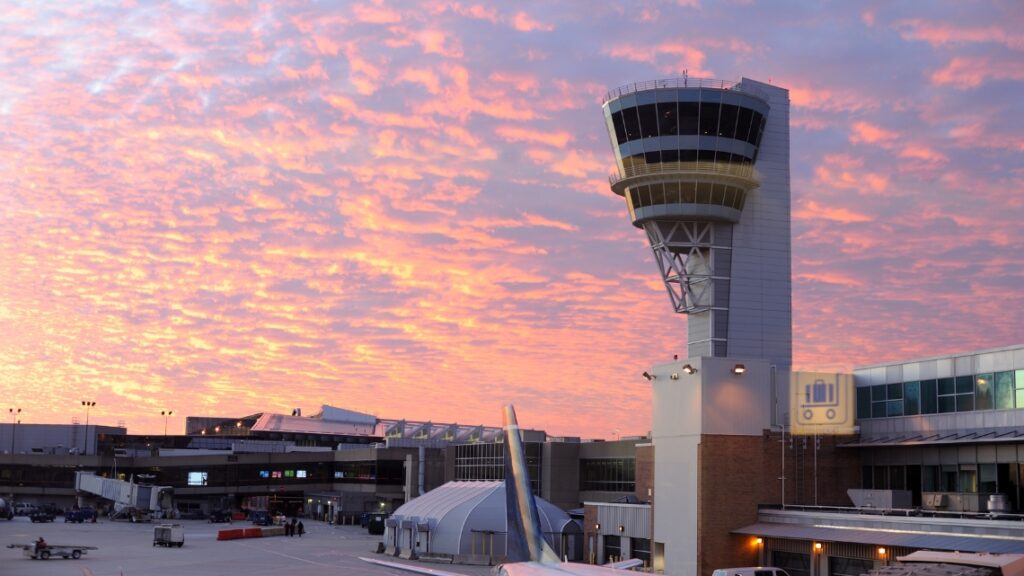
Philadelphia International Airport (PHL) does a great job welcoming travelers of all abilities. Alongside fully accessible bathrooms, you’ll find private companion restrooms ideal for travelers who need assistance. Each terminal offers dedicated relief areas for service animals, helping your furry travel companions feel comfortable, too. If you require wheelchair assistance, simply reach out directly to your airline ahead of time or ask at the airport’s customer service desks. Additionally, PHL provides visual paging, hearing loop systems, and tactile navigation aids for travelers with hearing or vision impairments. And when you’re ready to head into the city, wheelchair-accessible taxis and rideshares are easy to arrange right outside the terminal, making Accessible Travel Philadelphia smooth from landing to departure.
Accessible Attractions Philadelphia
Independence Hall & Liberty Bell Center
If you’re in Philly, don’t miss Independence Hall and the Liberty Bell Center, two of the most powerful landmarks in American history, and both thoughtfully accessible.
At Independence Hall (520 Chestnut Street), a UNESCO World Heritage Site, the Founding Fathers first broke with the British crown and later drafted the U.S. Constitution. The East Wing and first floor, including the old Supreme Court Chamber, are wheelchair accessible. While the iconic Assembly Room is only reachable by stairs, a touchscreen photo album lets you explore it virtually. The West Wing, home to the Great Essentials Exhibit with original prints of key founding documents, is fully accessible. Assistive listening devices, audio descriptions, and a printed “Birthplace of a Nation” pamphlet are available, and ASL interpretation is offered free with advance request and timed-entry tickets.
Just around the corner at 6th and Market Streets, the Liberty Bell Center offers a close-up view of one of the world’s most famous symbols of freedom. The Bell is easy to approach, with no barriers besides a simple chain. The center is fully wheelchair and stroller accessible, with touchable displays like a raised-letter replica of the Bell’s inscription. All videos are open-captioned, and assistive listening and audio description devices are available.
Together, these sites bring U.S. history to life in a way that’s inclusive, engaging, and unforgettable.
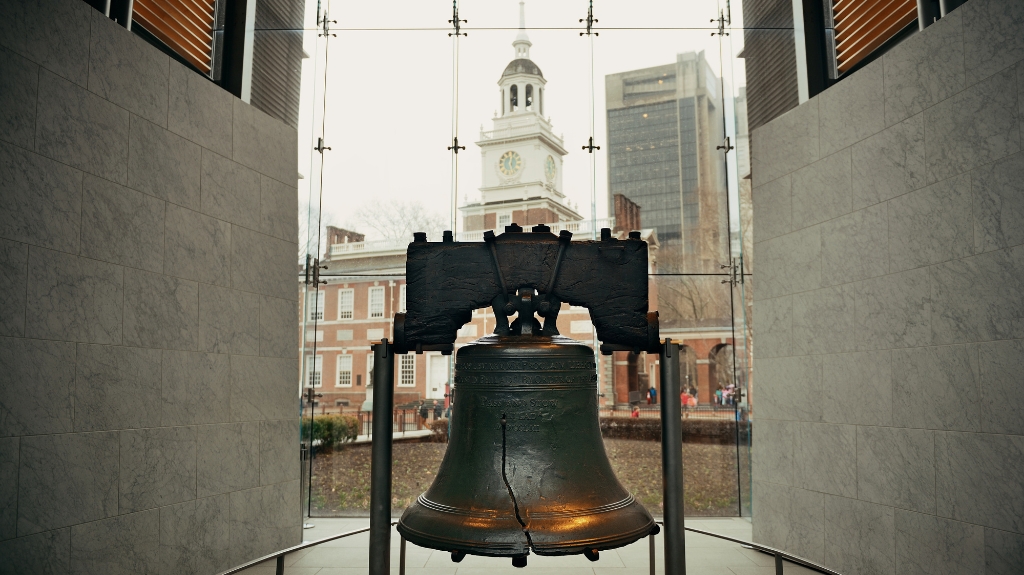
Museum of the American Revolution
A short walk from Independence Hall, the Museum of the American Revolution (101 S. 3rd Street) offers an in-depth, inclusive look at the fight for independence. Through immersive galleries, interactive exhibits, and an impressive collection of art and artifacts, the museum tells the stories of both well-known figures and everyday people who shaped the Revolution.
The building is fully wheelchair accessible, with ramps, elevators, and push-button entry. Free manual wheelchairs are available at the front desk, and accessible restrooms are located on every floor. All films are closed-captioned, and assistive listening devices and audio transcripts are available. ASL interpreters can be arranged with two weeks’ notice.
Blind and low-vision visitors can explore with touch guides, tactile graphics, and replicas, including a 3D-printed version of Washington’s War Tent. Touch tours are also available by request.
The museum is a Certified Autism Center, offering sensory guides, noise-reducing headphones, and a quiet space for watching films privately.
Whether you learned about the revolution in the classroom or you’re brand new to the subject, this museum makes the story of the American Revolution accessible, engaging, and personal.
Philadelphia Museum of Art
Overlooking the city from the top of the iconic Rocky Steps, the Philadelphia Museum of Art (26th Street and Benjamin Franklin Parkway) houses one of the nation’s most impressive art collections, with works spanning ancient history to contemporary movements.
Accessibility is thoughtfully addressed throughout the museum. Visitors can enter via barrier-free west and north entrances, and elevators connect all public areas. While the Rocky Steps themselves lack ramps, the top landing is reachable through the museum, and the area around the Rocky statue is accessible. Restrooms, water fountains, and seating in most galleries support a more comfortable experience.
Manual wheelchairs and adjustable-height canes are available at each entrance. Films in the galleries are closed captioned, and assistive listening devices, audio guides, and transcripts are offered. ASL interpretation is available for guided tours with advance notice.
Blind and low-vision guests can book touch tours, tactile graphics, and explore 3D reproductions of select works. Personalized tours with trained guides are available for individuals or groups with disabilities with at least two weeks’ notice.
National Constitution Center
Located at 525 Arch Street, the National Constitution Center is the only museum in the country dedicated entirely to the U.S. Constitution. Visitors can explore hands-on exhibits, view rare artifacts, experience the live 360-degree theatrical show Freedom Rising, and walk among life-size bronze statues of the 42 delegates who attended the 1787 Constitutional Convention.
The museum is wheelchair accessible throughout, with elevators to all public spaces and barrier-free entrances. Complimentary manual wheelchairs are available at the Information Desk. Accessible restrooms are located on the first floor behind the main staircase and on the second floor near the auditorium.
Most videos and interactive displays are open-captioned, and printed scripts are available. In the Sidney Kimmel Theater, assistive listening devices, large-print scripts, and iPod Touch captioning devices support access to the hourly Freedom Rising show. Similar devices are also available for events in the F.M. Kirby Auditorium. ASL interpreters for guided tours can be arranged with at least five days’ notice.
The museum includes several tactile features, including the bronze statues themselves, which invite touch. Sensory-friendly days are also offered throughout the year, making the experience more welcoming for neurodivergent visitors.
It’s an engaging, thoughtful place to explore the living document that continues to shape American life.
Franklin Institute
Philadelphia’s most visited museum, The Franklin Institute (222 N. 20th Street), brings science to life for visitors of all ages. From hands-on robotics and space exploration to interactive biology exhibits and tributes to Benjamin Franklin’s groundbreaking experiments, this museum is packed with curiosity-sparking fun.
Accessibility is thoughtfully integrated throughout the building. Elevators connect all public areas, and accessible entrances are available via 20th Street and the Bartol Atrium parking garage. Complimentary manual wheelchairs can be picked up at the Ticketing Desk. Accessible restrooms are located near the Planetarium and lunchroom on the first floor, and by Wisdom Hall and the Atrium on the second. The Eatery offers wheelchair-accessible seating as well.
ASL interpreters can be arranged for guided tours with three weeks’ notice. For neurodivergent guests, sensory backpacks are available and include items like noise-reducing headphones, sunglasses, fidgets, and sensory guides. If the experience becomes too overwhelming, return vouchers are offered within 30 minutes of ticket purchase.
Philadelphia Zoo

Founded in 1874, the Philadelphia Zoo (3400 W. Girard Avenue) is the oldest in the United States and still one of the most innovative. Spread across 42 acres of lush Victorian gardens, the zoo is famous for its Zoo360 experience—a system of elevated, see-through mesh trails that allows animals to roam overhead, offering a unique and engaging environment for both animals and visitors.
Accessibility is a top priority across the zoo. Manual wheelchairs are available for $8 and electric scooters for $30. Service animals are welcome, though guests are asked to notify staff upon arrival. Retractable leashes are not permitted, and emotional support or therapy animals are not allowed.
The zoo has partnered with KultureCity® to become a certified Sensory Inclusive™ venue, ensuring visitors with sensory needs, such as autism, dementia, or PTSD, can feel more comfortable and supported. Medical and neurodivergent professionals have trained zoo staff to recognize sensory overload and respond appropriately. Guests can access complimentary sensory bags (containing noise-canceling headphones, fidget tools, and cue cards) and are encouraged to download the free KultureCity® App, which includes a sensory-friendly map and social story to help visitors plan their experience.
The education team is also trained to support cognitive and communication disabilities, and customized group tours for all abilities can be arranged with two weeks’ notice. KidZooU, the award-winning children’s zoo and education center, offers hands-on learning spaces specifically designed with inclusion in mind.
Thanks to partnerships like the one with KultureCity®, the Philadelphia Zoo continues to lead by example, creating a more inclusive, welcoming environment where every guest is celebrated.
South Philadelphia Sports Complex
Coming to Philly to catch a game, concert, or live event? Whether you’re cheering for the Phillies, Eagles, Flyers, Sixers—or even the visiting team (we promise we’ll be nice)—you’ll find the South Philadelphia Sports Complex ready to welcome fans of all abilities. From stadium festivals and circus shows to WWE and major league matchups, each venue at this iconic complex is ADA-compliant and designed with accessibility in mind.
Located at Pattison Avenue and South 11th Street, the complex includes several of the city’s largest and busiest venues. Below are direct links to their accessibility services, features, and accommodations:
- Citizens Bank Park – Home of the Phillies
- Lincoln Financial Field – Home of the Eagles
- Wells Fargo Center – Home of the Flyers and 76ers
- Subaru Park (in Chester) – Home of the Philadelphia Union
Each location provides details on accessible seating, parking, entrances, restrooms, companion seating, assistive listening systems, and more. If you’re planning to attend, checking the venue’s accessibility page ahead of time is always a good idea to ensure a smooth and enjoyable experience.
3 Accessible Hotel Options in Philly
Philadelphia Marriott Downtown
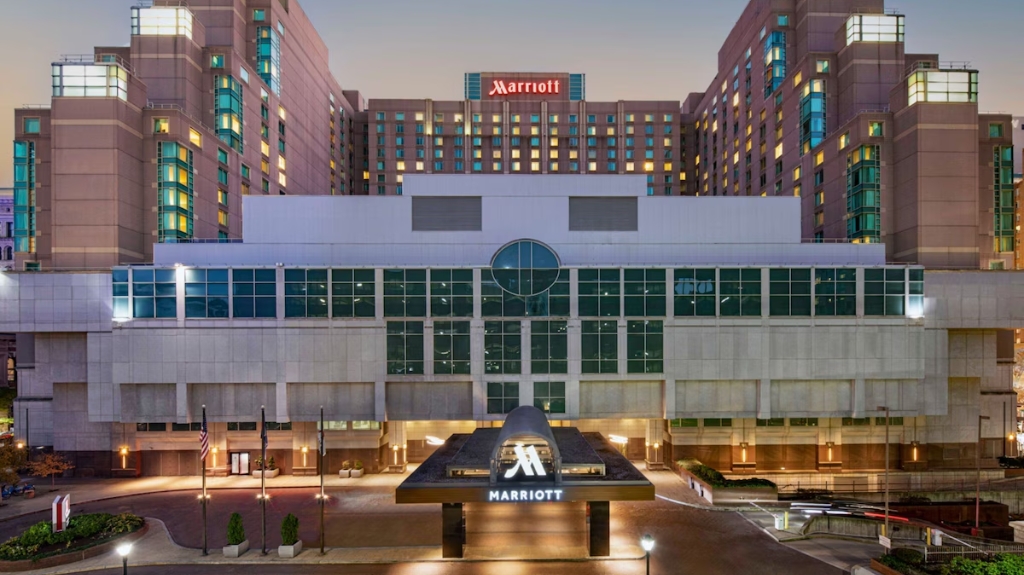
Situated at 1201 Market Street, the Philadelphia Marriott Downtown offers a central location with comprehensive accessibility features. The hotel provides mobility-accessible rooms equipped with roll-in showers, transfer showers, grab bars, and adjustable-height handheld shower wands. Rooms also include lowered peepholes, door locks, and electrical outlets, along with visual alarms and flashing door knockers for guests with hearing impairments. Common areas such as the business center, fitness center, restaurants, and meeting spaces are accessible via elevators and barrier-free routes. Service animals are welcome without additional fees.
Kimpton Hotel Monaco Philadelphia
Located at 433 Chestnut Street, Kimpton Hotel Monaco Philadelphia is a boutique hotel in the Historic District, near Independence Hall and the Liberty Bell. The hotel offers ADA-compliant rooms featuring roll-in showers with built-in transfer seats, handheld showerheads, and grab bars. Rooms are equipped with visual alarm clocks, bed shakers, telephone ring signalers, and door knock alerts. The entrance is level with the sidewalk, and common areas, including the business center, fitness center, and on-site restaurant, are accessible. Accessible parking is available with ramp access to the property. IHGKimpton Monaco Philly+1Kimpton Monaco Philly+1
Sofitel Philadelphia at Rittenhouse Square

Situated at 120 S. 17th Street, Sofitel Philadelphia combines French elegance with modern amenities. The hotel offers mobility-accessible rooms with features such as roll-in showers or tubs with grab bars, handheld showerheads, and lowered fixtures. Rooms also include visual alarms and lowered peepholes. The main entrance has a wheelchair-accessible ramp, and common areas like the restaurants, business center, and fitness area are accessible. Service animals are welcome.
Equipment Rentals:
Need a wheelchair or scooter during your stay? Contact:
- Marx Medical Equipment: Offers manual and power chairs, scooters.
- Scootaround: National vendor with delivery and pickup options.
Navigating the City Streets
Philadelphia’s historic sidewalks are a mix of cobblestone, brick, and slate. Curb cuts are common, but snow, uneven pavement, and construction can cause obstacles. Ask for help if needed; locals are usually happy to lend a hand. Portable ramps may be offered at some restaurants and shops upon request.
TWIA
Although all hotel and vacation rental information on this site is thoroughly vetted, we recommend calling ahead to ensure your needs are met.
Newsletter Sign Up:
Thank you!
You have successfully joined our subscriber list.
1 thought on “Accessible Philadelphia: A Complete Guide for Disabled Travelers”
I am a PWD-mobility Challenges,Spinal injuries from India.I am a Rotary foundation Alumni.I am interested to visit from India to learn more about Accessible Initiatives.Please consider.
Gautam Kumar Chaudhury